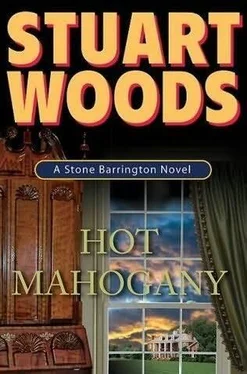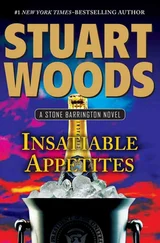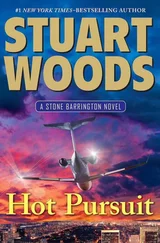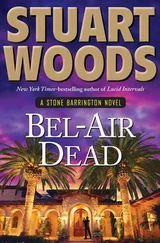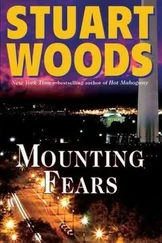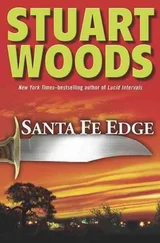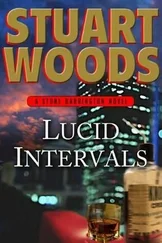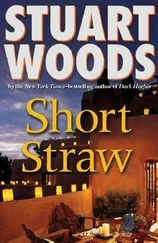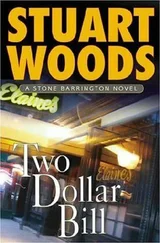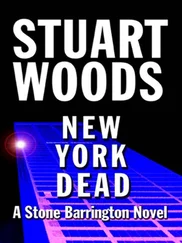“It’s lovely,” Stone said.
“I need a drink.” Barton said, opening cabinet doors to reveal a well-stocked bar. “Would you like something?”
“Thank you, no,” Stone said. “Too early for me.”
Barton poured himself a Scotch, then took a match from a box and lit the fire that had already been laid in the fireplace. “Have a seat,” he said, “and I’ll tell you a story.”
Stone sat down on the leather couch, and Barton took a chair.
“In the mid-eighteenth century a very fine firm of cabinetmakers in Newport, Rhode Island, called Goddard-Townsend, were making some of the finest furniture in colonial America. The traders and sea captains who populated Newport would bring back mahogany logs from the Caribbean and South America that were nothing like those available today. They were dense and fine-grained, not the spongy, forced-growth trees that make up plantations now, and the furniture of which they were made glowed and smiled at the viewer in a way that can no longer be reproduced. All the best of that wood was gone by the end of the eighteenth century.
“Goddard-Townsend, during the seventeen fifties and sixties, made, among other pieces, a series of mahogany secretaries – probably no more than six or seven. One of these pieces was made for the esteemed Brown family of Newport – Brown University, among other things, was named for them. The piece remained in the family from that time until the late nineteen eighties, when the patriarch, John Nicholas Brown, died. They then emptied out their house in Newport, Harbor Court, and sold it to the New York Yacht Club, which turned the house into their Newport headquarters.
“In 1989, the Brown family put the secretary up for auction at Christie’s. I think they thought it might bring a few hundred thousand dollars. It brought twelve point one million dollars, becoming the most expensive piece of American furniture ever sold at auction.”
Stone blinked at the price. “That’s staggering,” he said.
“I expect it staggered the Browns, too,” Barton said. “Four years ago I came into possession of one of the other Goddard-Townsend secretaries. It had passed through the hands of several families over the centuries, and I bought it privately from a family who were, perhaps, not entirely acquainted with its value. I won’t tell you what I paid for it, but I think that its value at auction will have increased greatly since the Brown secretary was sold in 1989. There are more billionaires around now than then, and they all seem to want eighteenth-century American furniture. The secretary you just saw could very well bring double that of the 1989 sale, if I can establish a good provenance, which is problematical.”
Stone tried to get his mind around that number.
“I brought the secretary here, and my people and I set out to reproduce it. With considerable effort I located some good mahogany. We matched the grains closely to the original and went to work. The project took us more than a year, and when we were finished we had two virtually identical secretaries.”
“Barton,” Stone said, “is the secretary I just saw in your barn the original or the reproduction?”
Barton ignored the question. “Stone, there are people out there who would kill for this piece of furniture,” he said. “I know, because they nearly killed me. Perhaps they think they did.”
“Barton,” Stone said, “please answer my question: Is that secretary the original or the reproduction?”
Barton sighed and took a swig of his Scotch. “I don’t know,” he said.
Stone and Barton left Lake Waramaug and drove to Danbury.
“Barton,” Stone said, “I’m in some doubt as to whether you’ve completely recovered your memory.”
“I’m not entirely certain, myself,” Barton said. “I seem to remember the things I try to, but I don’t know if I’m just avoiding thinking about the things I think I might not remember.”
Stone shook his head. “Let’s start with the basics: If I leave you in Danbury, buying a van, will you be able to find your way home?”
“Yes. I found my way home an hour ago, didn’t I? From what the doctor in New York told me, once memory starts to return, it continues. Maybe it stops, and some things can’t be recovered, but there’s no regression.”
“That makes sense, I guess. I’m just concerned about leaving you alone in Connecticut with no sense of whether you’ll be safe.”
“Safety is a different question,” Barton said. “My safety is in the possibility that whoever put me in the hospital thought he had put me in the grave.”
“You’re speaking in the singular. Was it one man?”
“I don’t know; he was the most convenient pronoun.”
“Do you have any memory at all of how you got into difficulties?”
“No.”
“But you think it was connected with the secretary?”
Barton looked at Stone as if he were a simple child. “There are two secretaries; one of them is gone, and so is my van. What do you deduce from that?”
“All right, all right. Is there a way to figure out whether the one in the barn is the original or the reproduction?”
“I can get my people in there and, among the three of us, we can probably figure that out. I wouldn’t be surprised if one of them made some sort of mark on the reproduction.”
“Then I think you should get them in there, so we’ll know which one we’re dealing with.”
“Why? Whoever has the other one won’t be able to tell the difference. No auction house will be able to tell the difference, not that they could auction it without getting caught.”
“So you think it will be disposed of privately?”
“I think whoever did this already had a buyer. If you were a thief of art you wouldn’t bother to steal, say, a Van Gogh, unless you already had a buyer, would you?”
“I guess not, but what about provenance? Won’t the buyer demand it?”
“Either the buyer is an expert or fancies himself one, or he’ll hire an unscrupulous expert to authenticate it. Provenance can be arranged.”
“Is the piece insured?”
“Yes, but only for what I paid for it. That would be unsatisfactory recompense for the effort I’ve put into this project.”
“But you can sell the one you have, can’t you?”
“I always meant to keep the reproduction for myself,” Barton said. “Of course, merely owning the reproduction, keeping it in my house, would keep the insurance company from paying for the theft, because their experts would think it the original.”
“Which it may well be.”
“Yes. I could never let anyone in the house again, unless I represented it as the reproduction, and I couldn’t afford to insure the piece for what it would bring at auction.”
“This is awfully confusing,” Stone said.
“I’m the one who’s supposed to be confused,” Barton said.
“It seems to be contagious,” Stone replied.
Following Barton’s directions, they pulled into a car dealership, and Barton pointed across the lot. “There,” he said, pointing to a line of new vans, “that’s the one I want, the second in line.”
Stone drove him to the showroom. “I’ll wait until you’ve actually bought the van,” he said.
“Don’t worry, I’ve brought my checkbook,” Barton said. “I’ll be out of here in the van in half an hour. Go home, Stone, and I thank you for your help. If my brother should ask, tell him I’m just fine.” He got out of the car, closing the door behind him, and strode toward the dealer’s showroom.
Stone turned around and pointed the car toward I-84 West. He would be home in an hour and a half.
Stone and Dino sat at Elaine’s, eating dinner.
“That’s a weird story,” Dino said. “Can a piece of furniture be worth twenty-five million dollars?”
Читать дальше
